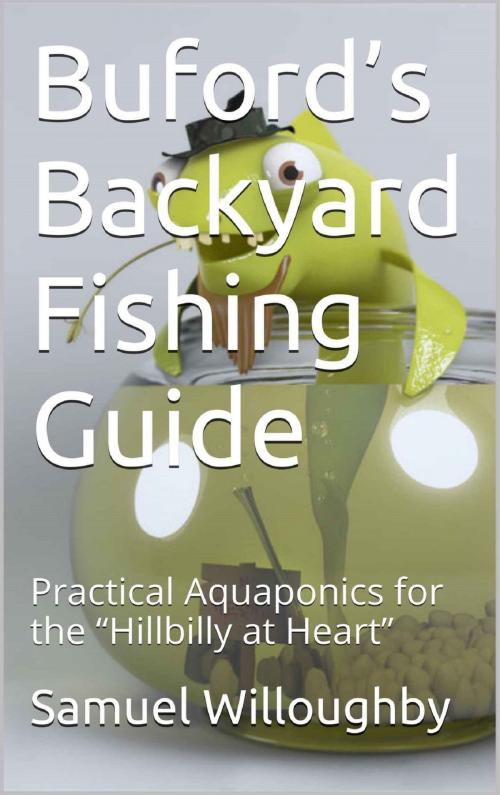| Author: | Samuel Willoughby | ISBN: | 9781310486326 |
| Publisher: | Samuel Willoughby | Publication: | March 16, 2014 |
| Imprint: | Smashwords Edition | Language: | English |
| Author: | Samuel Willoughby |
| ISBN: | 9781310486326 |
| Publisher: | Samuel Willoughby |
| Publication: | March 16, 2014 |
| Imprint: | Smashwords Edition |
| Language: | English |
Welcome to the idea of raising your vittles in your own backyard, as told to me by my neighbor, Buford. Now Buford has been known to tell a well stretched tale now and then, but the fact he gets meat and vegetables from the same space is the real deal. We’re not talking about corn and potato plants in a garden. This is the world of aquaponics—where you raise fish and plants all at the same time. Aquaponics combines the food production techniques of aquaculture, which is the practice of raising fish in tanks, with hydroponics, or the farming of plants in water.
Aquaponics uses the excrement from fish (what Buford calls “fish poo”) and uneaten fish food, breaks this material down with nitrogen-fixing bacteria and feeds the resulting fish fertilizer to plants growing in the same water containing the fish poo.
It’s a great deal, because the organic matter resulting from growing fish in a confined space would normally kill the fish if it continued to accumulate. Water is removed and replenished with fresh water on a daily basis in aquaculture practices. That’s the downside of aquaculture.
Raising plants in water, or hydroponics, requires vast amounts of nutrients that have to be added to the water on a daily basis.
Aquaponics turns these two bad things into a plus by combining the two practices. Fish poo, from aquaculture, goes through what’s called a “biofilter,” where it’s turned into a fertilizer that is then soaked up by plant roots that are sitting in the same water, which makes the plants grow green and strong.
Welcome to the idea of raising your vittles in your own backyard, as told to me by my neighbor, Buford. Now Buford has been known to tell a well stretched tale now and then, but the fact he gets meat and vegetables from the same space is the real deal. We’re not talking about corn and potato plants in a garden. This is the world of aquaponics—where you raise fish and plants all at the same time. Aquaponics combines the food production techniques of aquaculture, which is the practice of raising fish in tanks, with hydroponics, or the farming of plants in water.
Aquaponics uses the excrement from fish (what Buford calls “fish poo”) and uneaten fish food, breaks this material down with nitrogen-fixing bacteria and feeds the resulting fish fertilizer to plants growing in the same water containing the fish poo.
It’s a great deal, because the organic matter resulting from growing fish in a confined space would normally kill the fish if it continued to accumulate. Water is removed and replenished with fresh water on a daily basis in aquaculture practices. That’s the downside of aquaculture.
Raising plants in water, or hydroponics, requires vast amounts of nutrients that have to be added to the water on a daily basis.
Aquaponics turns these two bad things into a plus by combining the two practices. Fish poo, from aquaculture, goes through what’s called a “biofilter,” where it’s turned into a fertilizer that is then soaked up by plant roots that are sitting in the same water, which makes the plants grow green and strong.















